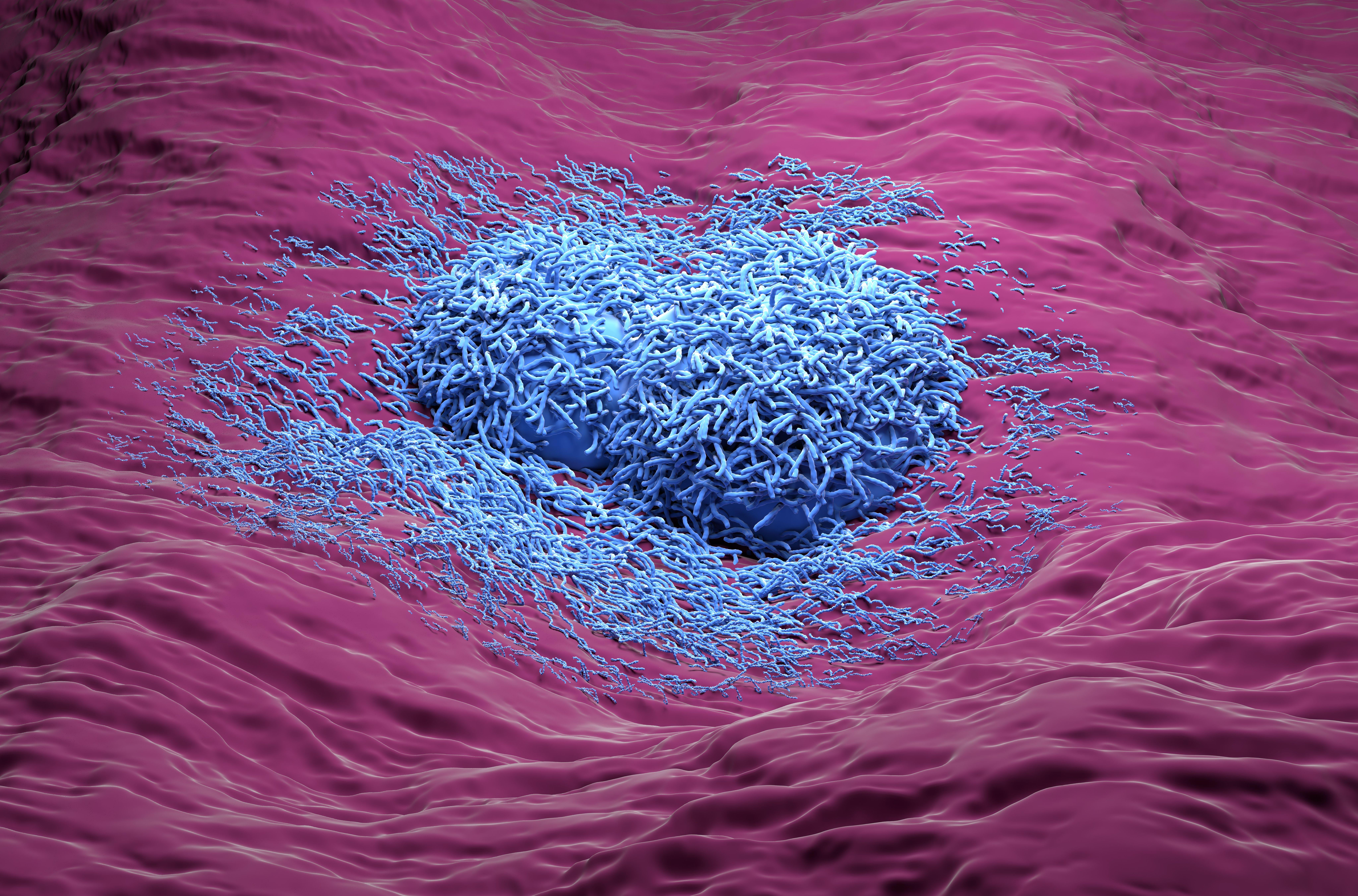Tissue Biopsy Holds Its Place as the Golden Standard in HCC
In an interview with Targeted Oncology during the International Liver Cancer Association Annual Conference 2023, Tim F. Greten, MD, discussed the key highlights from his presentation on tissue biopsy, and his thoughts on the opposing argument in favor of liquid biopsy.
Liver cancer | Image Credit: © LASZLO - www.stock.adobe.com

The characterization of solid tumors using molecular testing could allow for more targeted treatment approaches, including for patients with hepatocellular carcinoma (HCC). Presently, tissue biopsy treatment response biomarkers are standard of care, but this could change in the next few years.1
According to Tim F. Greten, MD, tissue biopsies will not be as prevalent in the next 5-10 years. Greten, deputy chief, Thoracic and GI Malignancies Branch, and head Gastrointestinal Malignancy Section, Center for Cancer Research, National Cancer Institute, and co-director of the NCI CCR Live Caner Program, and other experts believe plasma circulating tumor DNA, is the next treatment response biomarker in the field.1,2
Greten recently gave a presentation on the topic of tissue vs liquid biopsy biomarkers in HCC as part of the ILCA Debates session at the International Liver Cancer Association (ILCA) Annual Conference 2023.1
In an interview with Targeted Oncology™, Greten, discussed the key highlights from his ILCA presentation, and his thoughts on the opposing argument in favor of tissue biopsy.
TARGETED ONGOLOGY: Can you discuss the question of using liquid biopsy vs tissue biopsy treatment response biomarkers in liver cancer?
Greten: This is a difficult question, and the points are as follows. Number 1, we've been looking for many years to find targetable markers in HCC. The discussion in HCC is a little bit more difficult than in other cancers because we don't really have good markers or targets that people treat. So, that's 1 point. The situation is different if you talk about cholangiocarcinoma carcinoma.
The second point is, if we talk about standard procedures, the largest cohorts that have been done have always been done with the tumor biopsies. There are large studies done by the NCI, where they tried to do this type of targeted treatment across the board. This was not only in HCC, but across the board in many cancers, it has always been a solid biopsy. That's just because, the assays that we have are more reliable. That's why I would argue that tissue biopsy is the standard of care.
The only cause where I see that a liquid biopsy may be of advantage right now, is if we talk about patients, where we need more than 1 timepoint to examine them. In other words, for follow-up or look for recurrence, but all of these assays are still in development and under evaluation.
There are many studies ongoing in which this is being tested. But, unfortunately, none of these studies have really revealed any data that lead to a standard of care in liver tumors.
What is your response to those who support liquid biopsy as a treatment response biomarker in liver cancer?
The response to the counter argument is the following. Obviously, there's always a risk for with a biopsy, which I would cause consider very low. The second is, especially in cholangiocarcinoma, sometimes it's difficult to get enough tissue, which is a true point, so one may want to consider and revive, but I clearly see this. I also understand that it's more convenient for a patient as the biopsy can cause pain, etc. So, those are all valid questions, but the thing is, none of these assays are validated and sensitive enough in comparison with a tissue biopsy.
Looking ahead in the field, how do you think the role of liquid biopsy will change?
I think that in 5 to 10 years, nobody will talk about tissue biopsies, and we will only do liquid biopsies.
REFERENCES:
1. Greten TF and Chew V. Treatment response biomarkers: liquid biopsy vs tissue biomarkers? Presented at: ILCA Annual Conference 2023; Sept 7–9, 2023. Amsterdam, Netherlands.
2. Cheng ML, Pectasides E, Hanna GJ, et al. Circulating tumor DNA in advanced solid tumors: Clinical relevance and future directions. CA Cancer J Clin. 2021;71(2):176-190. doi:10.3322/caac.21650
Hope Beyond Surgery: Optimizing Care for Cholangiocarcinoma
February 15th 2024In an interview for Cholangiocarcinoma Awareness Day, Domenech Asbun, MD, discussed how the management of cholangiocarcinoma continues to evolve and addressed unmet needs in early detection and systemic therapy.
Read More
Durvalumab/Bevacizumab/TACE Significantly Extends Survival in HCC
February 6th 2024In an interview with Targeted Oncology, Bruno Sangro, MD, PhD, discussed the potential durvalumab, bevacizumab, and TACE has to set a new standard-of-care among patients with unresectable hepatocellular carcinoma.
Read More